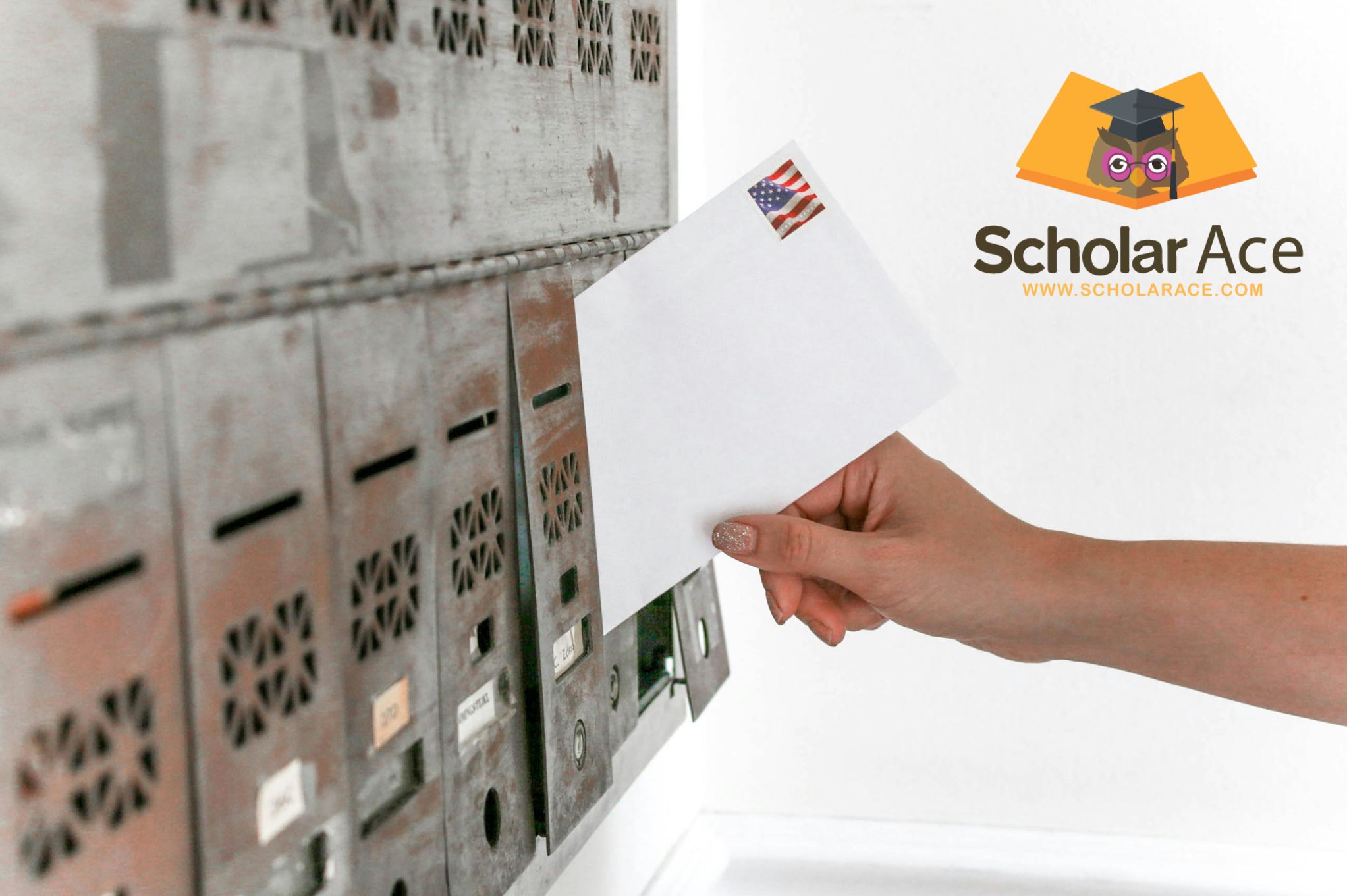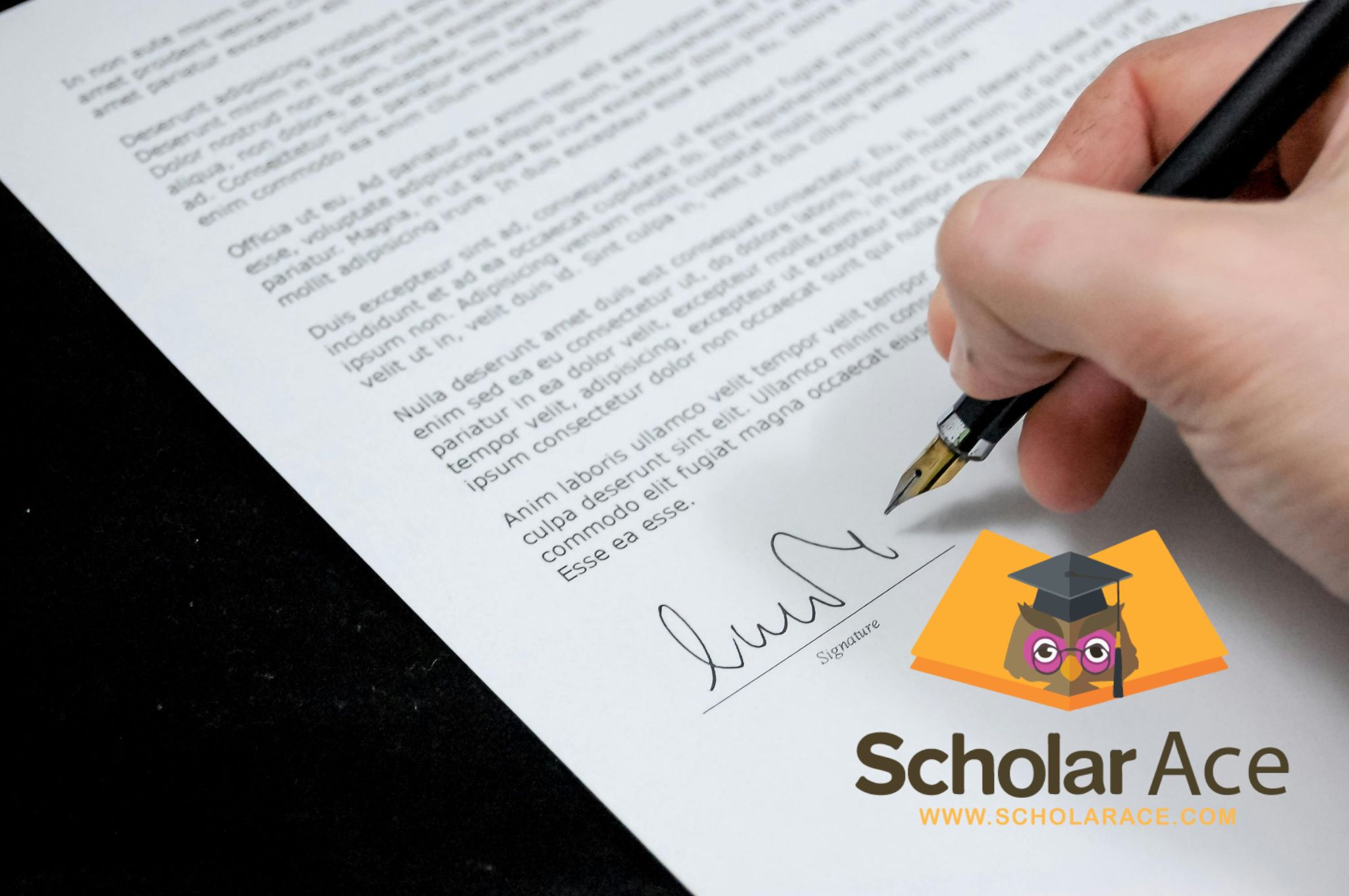Writing a compelling reference letter is crucial for any student applying for scholarship. Scholarship selection committees rely heavily on recommendation letters to gain deeper insights into a candidate beyond just grades and scores. A well-written letter of recommendation for a scholarship helps showcase a student’s character, accomplishments, skills, and fit for the scholarship.
In this article, we will discuss the importance of recommendation letters, provide tips for students to request strong letters of support, and include a sample scholarship letter of recommendation template. Following the template can help those writing references craft impactful letters that highlight a candidate’s merits and increase their chances of winning scholarships.
What is a Letter of Recommendation for Scholarship?
A letter of recommendation for scholarship, also known as a reference letter for scholarship, is a document written by a mentor who can vouch for a student’s character and qualifications. Used in scholarship applications, this type of letter helps provide selection committees with a more multidimensional understanding of candidates beyond just transcripts and scores.
An effective scholarship letter of recommendation achieves several goals. It demonstrates how the author knows the student, such as through a class they taught together or as their supervisor at an internship. The letter then highlights examples of the student’s strengths, skills, accomplishments, and potential for success that make them a strong fit for the scholarship. Traits like leadership, community service, academic excellence, extracurricular achievements, and future ambitions are commonly addressed.

Why Recommendation Letters Are Important for Scholarships
Getting a scholarship is highly competitive, so utilizing recommendation letters is crucial. An effective letter of recommendation provides selection committees with insightful details about an applicant beyond academics through an enthusiastic endorsement from a mentor. Statistics show applications with letters have higher acceptance rates, with one study finding over 90% of recipients had references. This demonstrates letters reveal important intangibles that differentiate qualified candidates.
While grades matter, committees seek students who will maximize opportunities. Reference letters allow mentors to passionately showcase an applicant’s merits through examples of qualities like leadership, work ethic, and spirit that elevate their application above others. Requesting strong letters is a minor task with great potential to impact admissions outcomes positively.
Read More: Do’s and Don’t’s of Writing an Effective Thank You Letter for Scholarship
How to Write a Reference Letter for Scholarship?
Crafting an effective reference letter for a scholarship takes careful planning and following best practices to highlight candidates in the strongest possible light. The recommendations have the potential to make or break an application, so devoting time and thought is worthwhile. Here are the key steps you should follow to write a reference letter for a scholarship.
1. Review the Scholarship Requirements
Thoroughly examining what traits, experiences and accomplishments are important to the specific program you’re writing for allows you to strategically emphasize examples of how the applicant fulfills the funder’s aims. Different opportunities prioritize certain skills, extracurricular programs, areas of study, or grades, so understanding target criteria guides the inclusion of the most pertinent details about a student’s qualifications and merits.
Considering minimum demands and preferred attributes in advance helps shape a letter focused on specifically showing a candidate meets and exceeds expectations.
2. Begin with an Introductory Paragraph
The opening paragraph sets the tone and establishes the relevant context for the recommendation, so it warrants careful crafting. It should introduce the student by name as well as concisely describe how you know them, whether through a class, club, internship, or other experience. This establishes your credibility while presenting an initial positive impression.
You can also set high aspirations by optimistically stating your confident belief the scholarship would tremendously benefit the applicant based on their admirable character traits and dedication observed.
3. Describe the Candidate in the Context of the Scholarship
After establishing the foundation of your relationship and endorsement, this section dives into vivid examples showcasing how the student fulfills the aims and criteria of the particular scholarship program. Painting a lively portrait through detailed anecdotes highlighting specific instances of their talents, accomplishments, skills, and strengths grasped through jointly striving toward goals helps illustrate suitability.
While transcripts provide basic academic qualifications, narratives bring candidates to life, granting insight beyond statistics into how their passions and diligence promise returns on any investment.
While professionalism remains important, a personal touch crafting a real person from actions elevates a letter. Candid stories that spark feelings and impart a sense of being there also stick in readers’ minds longer than generic praise. Achievements should directly connect back to valued traits rather than coming across as empty boasting, with anecdotes strategically selected to prove rather than simply claim a student’s merits.
4. Describe other Achievements, Qualities or Skills
Beyond the focus on requirements, incorporating additional contextual information grants a deeper perspective into a candidate’s well-rounded excellence. Cover noteworthy extracurricular activities, work experiences, volunteer efforts, talents, or personal attributes that further highlight their qualifications and character.
While core criteria establish minimum standards, supplemental details portray aspirants as prestigious scholar material deserving of selection from a pool of qualified contenders. Keep descriptions relevant while maintaining impact and brevity versus overwhelm with excessive lists.
5. End with a Conclusion
Reinforce the letter’s positive message with a strong wrap-up expressing unwavering enthusiasm for applicants’ merits. Without needlessly copying introduction content, reiterate key points for emphasis along with an expression of confidence their dedication ensures exceptional returns on any invested scholarship funds. An upbeat closing leaves readers with optimism, providing intangible reinforcement of the candidate’s candidacy versus doubts that necessitate clarification.
6. Proofread Carefully
The final but vital proofreading phase maximizes impact by removing any grammatical errors or areas of potential confusion that could undermine the credibility or obscurity of the letter’s support. Have candidates review as well to catch anything potentially worrying from their perspective. Impeccable recommendations leave selection committees with the utmost confidence in applicants through representative error-free advocacy. Representation matters, so refine wording until perfectly polished.
7. Deliver on Time
Adhering firmly to established deadlines prevents the risk of letters not receiving consideration if submitted too late. Save writer’s efforts for naught while also communicating candidates’ disorganization. Send some weeks in advance when possible versus cutting it close, and promptly follow up on any requests for supplementation in a customer service-oriented manner. Meeting printing or online portal requirements demonstrates preparation and increases the chances reviewers focus on merit rather than logistics.
Read it also: How to Customise Your Letter of Motivation for Specific Programs or Job Opportunities?

Scholarship Recommendation Letter Template
Using a scholarship recommendation letter template provides structure and ensures the inclusion of necessary details when crafting these important documents. While letters should feel personalized, a template prevents important points from being missed.
Here is a template to help you write a scholarship recommendation letter:
[Your Name]
[Your Location]
[Your Phone Number]
[Your Email Address]
[Date]
[Name of Scholarship Reviewer]
[Organization Name]
[Organization Location]
Dear Scholarship Committee,
It’s with great pleasure that I write to offer my recommendation of [Candidate’s Full Name] for the [Name of Scholarship]. I have worked with [Candidate’s Name] as [their Academic Role] for [Duration of Time]. They are a remarkable young person with [Personal Trait Relevant to Scholarship Criteria]. I believe [Candidate’s Name] is an exemplary candidate for this opportunity.
Traditionally, [Awarding Organization] awards this scholarship to students who [List Criteria]. [Candidate’s Name] has demonstrated these qualities on numerous occasions. For example, [Provide a Relevant Achievement Example].
[Candidate’s Name] also possesses [List Other Relevant Qualities]. As [Your Academic Role], I noticed [Candidate’s Key Skill, Ability, or Quality]. It is because of these qualities that [Candidate’s Name] has achieved so much in the few years since joining the [Name of Current Educational Institution or Program] community.
Therefore, I am honored to offer my full support and recommendation for [Candidate’s Name] as a highly qualified candidate for this [Name of Scholarship]. In my opinion, [Candidate’s Name] is a [Describe Candidate’s Prime Merits] student who I believe is extremely deserving of this award and opportunity. Please feel free to contact me by phone or email if you require any additional information.
Sincerely,
[Your Name]
Example of Recommendation Letter for a Scholarship
Here is an example recommendation letter for a scholarship:
John Doe
New York, New York
212-555-1234
November 1, 2023
Academic Scholarship Committee
NYU School of Medicine
New York, New York
Dear Committee Members,
It is with great enthusiasm that I write to highly recommend Grace Williams for the Robert Johnson Memorial Scholarship. I have known Grace for two years as her faculty advisor and biology professor at NYU. She is a remarkable student with unwavering dedication to her education and ability to excel despite challenges.
NYU School of Medicine has a long tradition of awarding this scholarship to students who demonstrate strong academic achievement as well as a commitment to service. Grace embodies these qualities. She maintained a 3.9 GPA while also volunteering over 200 hours at a local health clinic. Furthermore, Grace worked to establish a new tutoring program for at-risk youth in her community.
As her advisor, I have seen Grace’s leadership abilities emerge as she motivates her peers to achieve their highest potential. Her classmates readily seek out her advice and support as she displays compassion and work ethic. It is because of these strengths that Grace has accomplished so much in such a short time at our university.
Therefore, I strongly and enthusiastically recommend Grace Williams for this scholarship. She is a dedicated scholar who I know will make the most of this opportunity. Please contact me if you need any additional information.
Sincerely,
John Doe

Bonus Tip: Get Expert Help with Scholarship Recommendation Letters
How can students get expert help with reference letter for scholarships? Our Scholarace Assisting team assists with personalized discovery calls to understand each student. Consultants then craft letters authentically portraying candidates while specifically addressing reviewer criteria. Students collaborate by approving materials to maintain control. Final reviews polish applications before deadlines to relieve stress during the rigorous application season, maximizing potential through guidance.
Conclusion
This guide provided an overview of reference letter for scholarships, the importance of reference letter for scholarship applications, and best practices for crafting strong documents. Requesting meaningful letters reflects effort but can open valuable educational and financial opportunities. Templates, samples, and seeking tailored assistance optimize applications by highlighting merits to selection committees.
Remaining aware of specific requirements while infusing passion captures mentors who know candidates well. Seeking early help from services like Scholarace allows focus on opportunities rather than paperwork. Their assistance crafts outstanding portfolios through personalized support. Contact Scholarace today to gain dedicated guidance toward your scholarship goals.
FAQs about Scholarship Recommendation Letters:
How long should a recommendation letter be?
Recommendation letters are typically one page long, or 200-300 words. Try to keep it concise while addressing all key points to maintain reviewers’ interest.
How many recommendation letters do I need?
The number required varies by scholarship. Most ask for 1-3 letters. Check specific guidelines and request early from trusted referees to avoid last-minute issues.
Should I waive my right to view letters?
There’s no definitive answer. Waiving access may allow mentors full honesty but prevent addressing any inaccuracies later. Discuss the pros and cons with letter writers.
How do I follow up with my recommenders?
Express gratitude for their time and reassurance requests were submitted. Consider small thank-you gifts. Stay in touch throughout the application process in case follow-up is needed from committees.






























